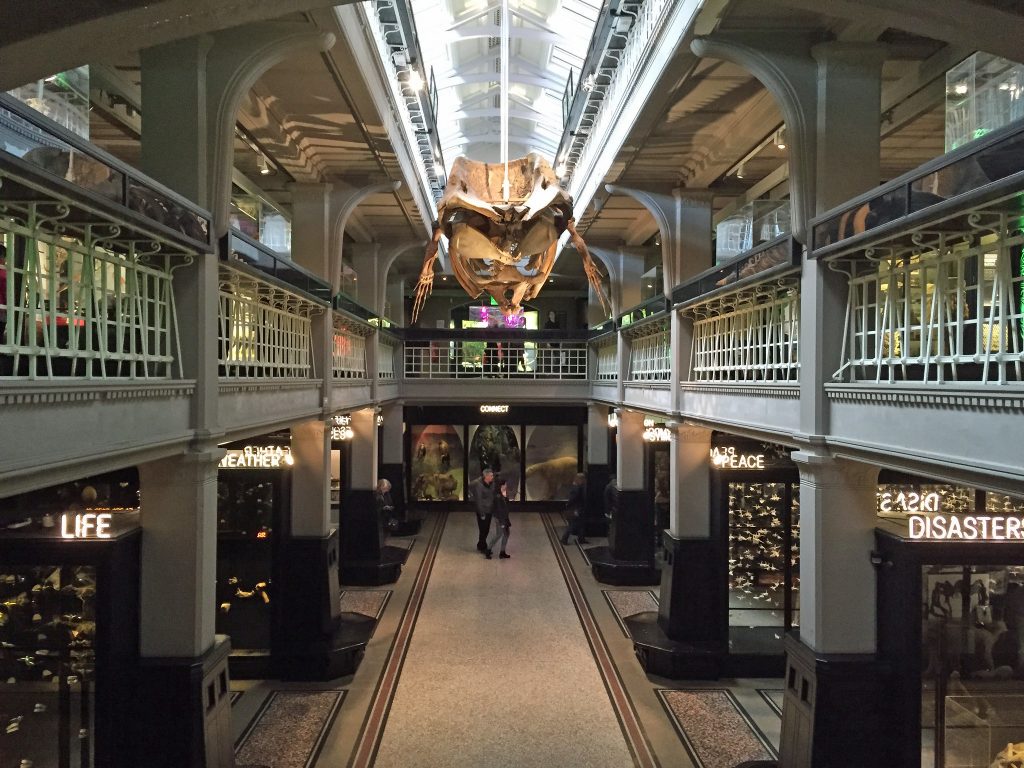
The Western Museum and Post-Colonialism
Our SALC Employability Champion Vidal Beta reports on Dr Njabulo Chipangura’s seminar on the relationship between objects, museums, and colonialism.
The Western Museum is one of the most controversial establishments in post-colonial debate. To some, it acts as a door to cultural appreciation, exhibiting artefacts, textiles and stories that allow visitors to travel and engage in a multicultural scene many would have never imagined. To others, it acts as a reminder of the imperialist tradition that appropriates and reduces non-Western cultures to a piece of entertainment.
In the last few years, the Heritage sector has become aware of its position in post-colonial discourse, which raises the question: ‘What do we do next?’. Students interested in a future career in the heritage sector have excellent opportunities within our university to start informing themselves and building their personal and professional philosophy. I want to give an example of a resource accessible to all of us: the free lectures and workshops given by our experts at The University of Manchester. In his seminar on the 21st of November, Dr Njabulo Chipangura, Curator of Living Cultures at Manchester Museum, incited a fascinating discussion on the topic.
“Objects are more than just things; they are stories, identities, and cultures that hold value”. Dr Chipangura made us think of the agency of the artefacts usually displayed in a museum. “The mummies you see in the museums are not just a decorating object. They are someone’s ancestor, someone who deserves the dignity to rest in peace.” This struck me deeply because of my previous view of a sarcophagus as a primarily decorative object – a beautiful piece meant for observation. However, I now realise that it embodies something sacred. It is a profound narrative, offering insights into the ancient Egyptians’ reverence and faith. Reflecting on this, I wonder whether the sarcophagus rightfully belongs in Egypt. It encapsulates a vital segment of their history and mythology, acting as a poignant bridge connecting contemporary society with the mysteries of ancient Egypt.
The ability of objects to serve as bridges is often cited as a compelling reason for their repatriation. Repatriation, the act of returning an object to its country of origin, is a process Dr. Chipangura underscores as crucial for cultural understanding. Drawing on an example from his research, he recounted studying an object before repatriation. Upon its return and later discussions with the community to which the object belonged, the true significance of its colours appeared. This experience fuelled Dr. Chipangura’s strong advocacy for the repatriation of numerous objects. He acknowledges the complexities of the repatriation process but asserts that, given technological advancements allowing replication and cultural changes, not every society will want every object back. Repatriation is a fundamental responsibility for institutions like the Manchester Museum.
The most exciting aspect of this discourse was the exploration of the opposing viewpoint. One illustrative example involved a horn from the Kingdom of Benin in Nigeria held at the Manchester Museum. While repatriation is typically directed towards the official State, a noteworthy consideration is that numerous objects are tied to smaller, self-governed ethnic groups that lack a voice in determining the fate of these artefacts upon their return to the country. In certain instances, this situation led to civil unrest and political differences that might have been avoided had the objects remained in Britain. Moreover, many of these artefacts hold significant value for the Black British diaspora. For some, museums in Britain serve as the sole accessible space for connecting with this aspect of their identity. As one participant aptly expressed, “Perhaps not everyone feels at ease travelling to a nation where they feel a sense of detachment just to gain a deeper understanding of themselves.”
I was particularly impressed to learn about Dr Chipangura’s work at the university’s heritage department and how it impacts the international museum scene. One of the most fascinating things he is working on is the decolonisation of both African collections in Western museums and constructing museums in Africa outside of the colonial gaze. He collaborates to create a traditional yet different way of understanding African cultures.
Dr Chipangura’s approach aligns with the perspective of Afrocentric thinkers like Audrey Lorde, who argued that the ‘master’s tools cannot destroy the master’s house.’ In this case, the shift in the Museum’s narrative from glorifying the Western Empire to celebrating African cultures is crucial in understanding the motivation behind the change.
I really enjoyed this seminar! It helped me realise that working in Heritage goes far beyond preserving objects. There is a fascinating intersection between Heritage, ethics, and the State. I am super excited to learn more and tell you all about it!

0 Comments